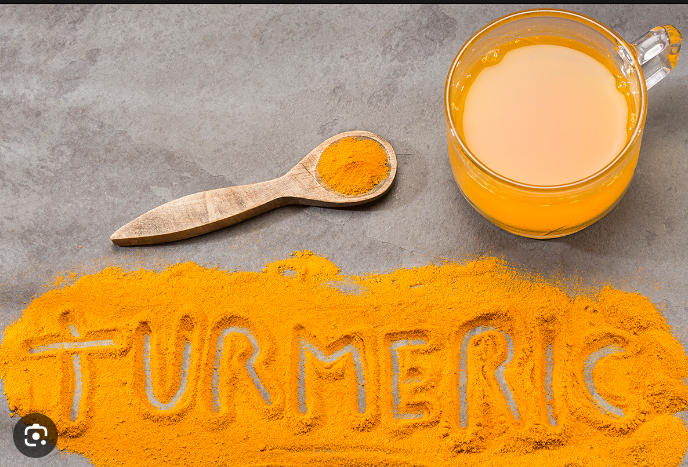Discover the many health benefits of turmeric, such as its anti-inflammatory qualities, ability to prevent disease, and general health-promoting effects.
Don’t forget to raid the spice cabinet if you’re trying to eat healthier. Specifically, the vivid yellow-orange spice turmeric is frequently praised for what appears to be a variety of health advantages. “The root of the turmeric plant is used to make turmeric, a popular spice sometimes referred to as the ‘golden spice,'” says Reema Kanda, lead registered dietitian at Hoag Orthopedic Institute in Irvine, California. Turmeric is a member of the ginger family and is commonly used in Indian and Southeast Asian cuisine. It is native to these regions.
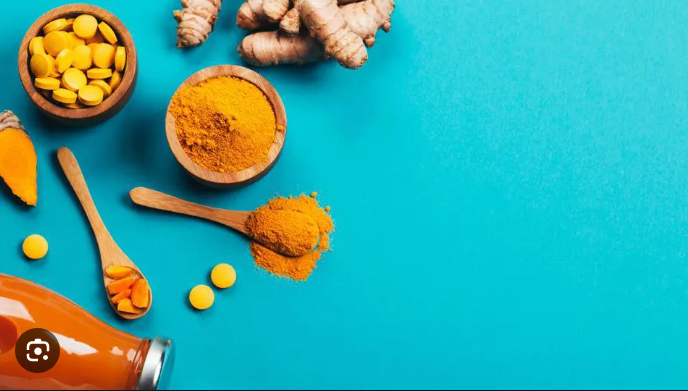
benefits of turmeric
Turmeric is known for its medicinal properties and has long been used to enhance flavor and color. It is therefore a vital component of several Chinese and Ayurvedic medications. According to Kanda, these two traditional eastern medical practices “have used turmeric for the treatment of pain and inflammatory disorders” for centuries.
Health Benefits of Turmeric
In an effort to learn more about the advantages of this spice, Western medicine has only lately begun to investigate it. Turmeric offers a significant amount of phytochemicals, which are plant-based compounds that aid in the reduction of oxidative stress and inflammation, as well as the daily wear and tear on our bodies. This spice is also high in manganese, iron, and potassium, and it has a lot of vitamin C, which supports immunity.
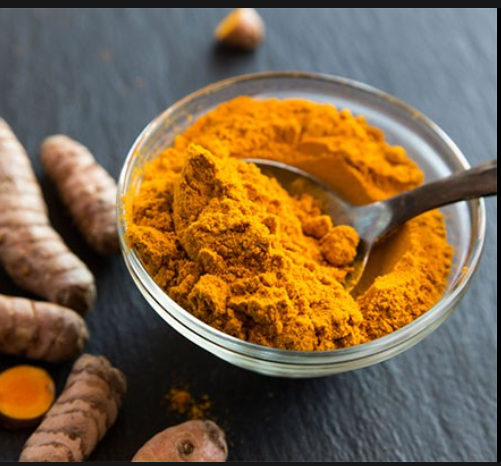
Benefits of turmeric
However, curcumin, the main ingredient in turmeric, is what makes it so attractive in terms of health benefits. It may be involved in the following:
- Inflammation.
- Arthritis.
- Cognition.
- Blood vessels.
- Cancer.
- Digestive system
Inflammation
Curcumin, which is present in turmeric, has the potential to decrease systemic inflammation and strengthen the body’s defense against free radicals, which are essentially chemicals that age cells and can play a role in the onset of chronic illnesses.
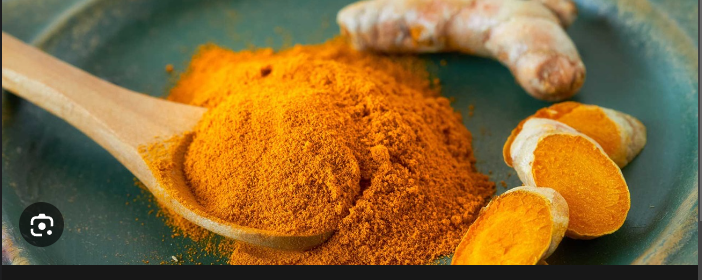
Benefits of turmeric
According to Megan Wroe, wellness manager and registered dietitian at Providence St. Jude Medical Center in Southern California, conditions like arthritis, muscle soreness, macular degeneration, and heart disease can all benefit from regular consumption of turmeric.
Turmeric “should never be considered the one and only strategy for these conditions,” according to Wroe, despite the fact that some studies have shown it to have promising results. “But it can certainly help to calm rampant inflammation.”
Arthritis
There are occasions when arthritis-related joint pain can be relieved with turmeric. Turmeric has been rated as “possibly effective” for this use by the Natural Medicines Comprehensive Database, a searchable resource for consumers.
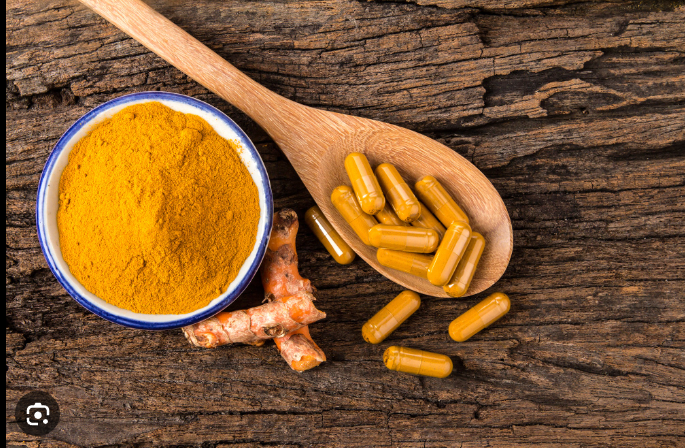
Benefits of turmeric
The Arthritis Foundation mentions in its inventory of supplements and herbs used to treat arthritis symptoms that a 2016 industry-sponsored systematic review discovered that taking 1,000 mg of curcumin daily decreased pain and inflammation associated with osteoarthritis and the need for nonsteroidal anti-inflammatory drugs.
In 2021, a more recent meta-analysis concluded that curcumin and turmeric extract might be a safer dietary supplement for people with osteoarthritis than nonsteroidal anti-inflammatory drugs (NSAIDs) like ibuprofen. When taken for at least 12 weeks, this supplement appears to be as effective as NSAIDs with fewer side effects.
Cognition
Brain-derived neurotrophic factor, or BDNF, is a hormone that is elevated in the brain due to turmeric use. This hormone may help maintain brain elasticity and enhance its ability to prevent age-related cognitive decline and dementia.
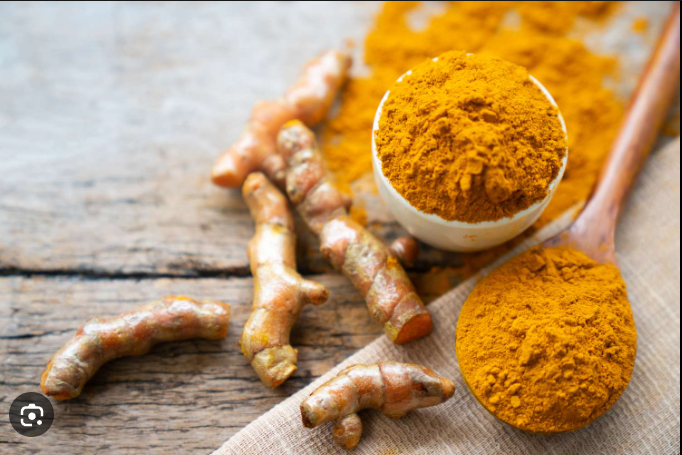
Benefits of turmeric
For example, some research supports the use of curcumin supplementation to increase body levels of BDNF, including a 2019 systematic review published in the journal Nutrition Research.
Blood vessels
Because turmeric enhances the blood vessel lining’s capacity for self-healing, it may lower blood pressure and lower the risk of blood clots, strokes, and heart disease. For instance, a brief study published in the journal Aging in 2017 indicates that middle-aged and older healthy adults’ artery function and stiffness were improved by short-term curcumin supplementation.

Benefits of turmeric
In a similar vein, curcumin has been shown to attenuate vascular calcification, or to slow or stop the process by which calcium and other minerals accumulate in blood vessels, according to a 2022 study published in the journal Experimental Biology and Medicine. If not addressed, this age-related, common process may result in hypertension, a heart attack, or a stroke.
Cancer
The anti-inflammatory and antioxidant qualities of turmeric have implications for preventing cancer, especially because of its capacity to inhibit or stop the growth of cancer cells.
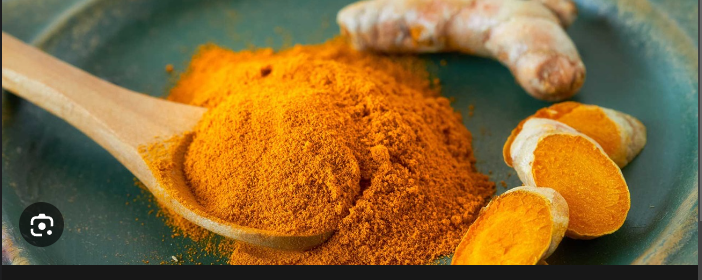
Benefits of turmeric
According to some research, inflammation is a major growth factor for many cancer types, and turmeric may one day be utilized as a cancer treatment. For example, research published in the 2019 issue of the journal Nutrients suggests that curcumin may aid in blocking the cell signaling action implicated in the initiation and spread of cancer within the body.
Digestive system
Inflammation in the digestive system may be directly reduced by turmeric.
“The prebiotic-like qualities of turmeric allow it to favorably impact gut microbiota, bolstering the gut-immune relationship,” says Acacia Wright, a registered dietitian at Orgain, a clean protein company located in Seattle.

Benefits of turmeric
Prebiotics are an indigestible fiber type that provides nourishment to probiotics, which are beneficial bacteria found in the gut that support various body processes and general health. Enhancing the gut microbiome could reduce your vulnerability to numerous illnesses and infections.
Supplement considerations
Overall, turmeric is a great spice to add to your cooking and possibly even consume as a supplement. However, research into the health benefits and potential risks of turmeric is still evolving, Kanda says. Key areas of needed research include how turmeric works, what the right dose is to prevent or treat certain conditions, and whether there are any long-term drawbacks to using turmeric for health reasons.

If you’re interested in taking a supplement, go for turmeric as a whole rather than its isolated ingredient, curcumin, Dennett adds. Although researchers initially focused on the health properties that curcumin has, they’re now finding that other components of turmeric can be beneficial.
“That’s where research is starting to point: We should just go for turmeric in our cooking if we can, if that’s appealing to us,” Dennett says. “But otherwise, getting the whole turmeric powder in supplements is an option.”
There is no need to overdo it with supplements, either.
“If somebody is taking capsules, it wouldn’t be a good idea to conclude: ‘Oh, if a little is good, more is better,'” Dennett says. “I would stick to the recommended dosages on the label.”
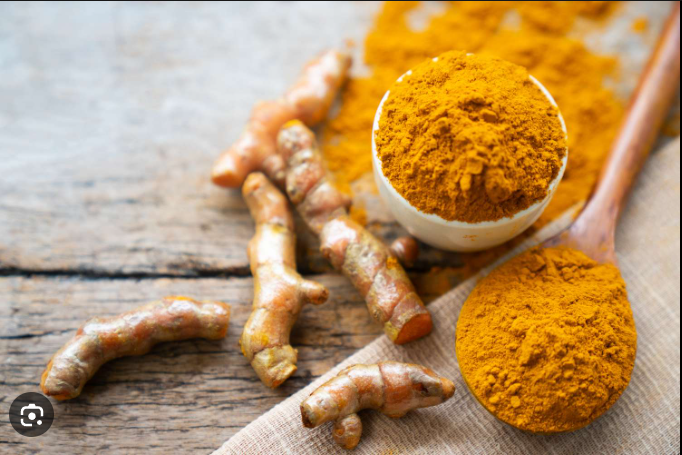
One thing that is known is that some research has shown piperine, the distinctive compound of black pepper, to increase the absorption of turmeric by 2000%. Select a curcumin supplement that also includes piperine, which is frequently offered under the brand name BioPerine, if you’re going to go that route.
According to Kanda, if you’re taking turmeric supplements, be advised that some individuals who have taken large amounts of the extract have experienced mild side effects such as an upset stomach, lightheadedness, or diarrhea. You should probably avoid taking large doses of turmeric if you have low iron or anemia because it may prevent you from absorbing iron from your food.
Cooking with turmeric
Kanda states that “by using whole or ground dried turmeric in cooking, we can all reap the benefits of turmeric,” even though science is still figuring out the specifics of supplementation. To enhance color and add a flavor accent, try adding it to dishes that include poultry, seafood, and lentils.
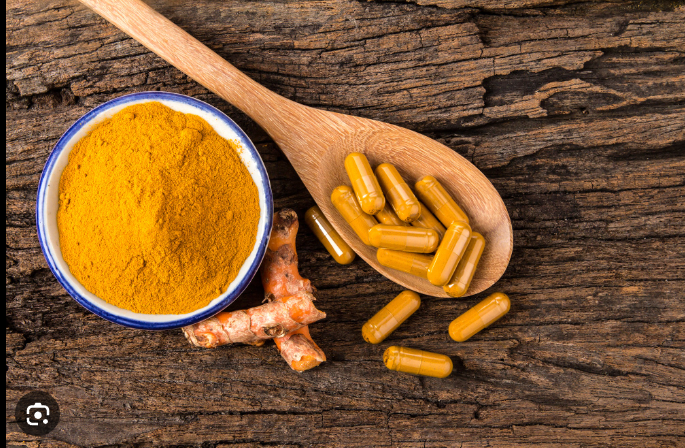
“You can sprinkle it in any dish along with your other favorite seasonings, such as thyme, cumin, or garlic,” Kanda says. “If you enjoy mixing marinades, try adding turmeric.”
It can also be added to teas or smoothies, which are healthy beverages. For example, “golden milk,” a delicious concoction of milk and turmeric, is high in calcium and protein.
A tropical turmeric treat sounds good. Kanda provides this simple and delectable recipe for a mango-turmeric smoothie:
Tropical turmeric smoothie
- 1/3 cup plain yogurt
- 1/3 cup almond milk
- 1/2-inch peeled, fresh ginger root
- 1/2-inch peeled turmeric root (substitute with 1 teaspoon turmeric powder if you cannot find fresh turmeric).
- 1 roasted golden beet (peeled).
- 3/4 cup frozen mango

Place the ingredients into a blender and blend until smooth.
Wroe also recommends making turmeric the star in dishes like curries.
Keep expectations in check
Although adding turmeric to your diet is a great idea, you shouldn’t count on it to provide relief right away. According to Wroe, some of her clients who are looking for non-pharmacological methods of managing their pain become disillusioned once they begin a supplementation regimen that involves consuming whole foods or supplements containing turmeric.

“Managing pain and inflammation is a complex matter that necessitates a variety of approaches; a single spice pill cannot address the entire issue,” the author notes. “Instead of taking turmeric pills, you’ll get the greatest benefit from real food. Make sure to combine it with other health-promoting practices.”
Also read-Pizza : How To Make Pizza Healthier For Our Body And For Our Life
images source: Google
Disclaimer: The opinions and suggestions expressed in this article are solely those of the individual analysts. These are not the opinions of HNN. For more, please consult with your doctor.







